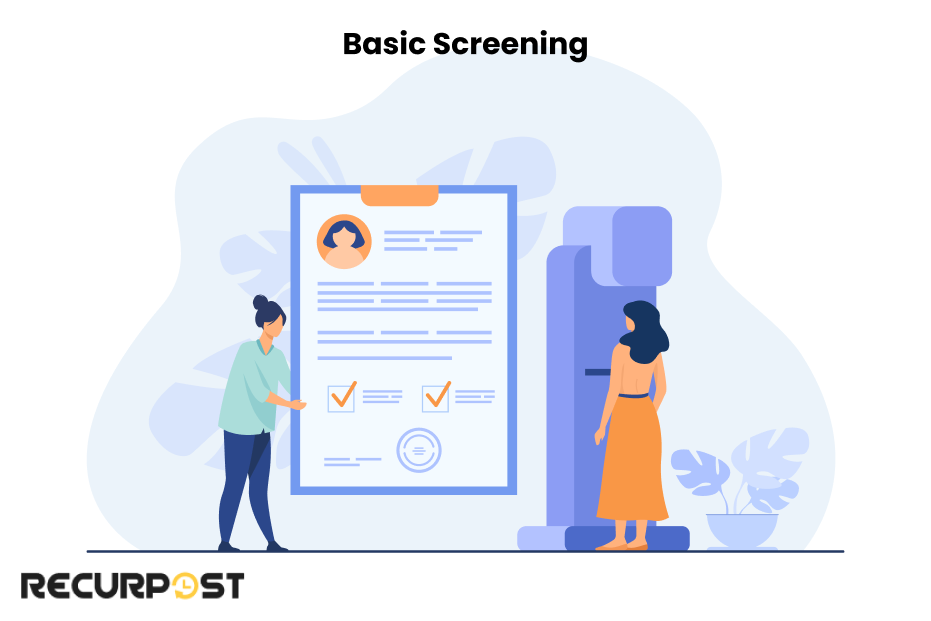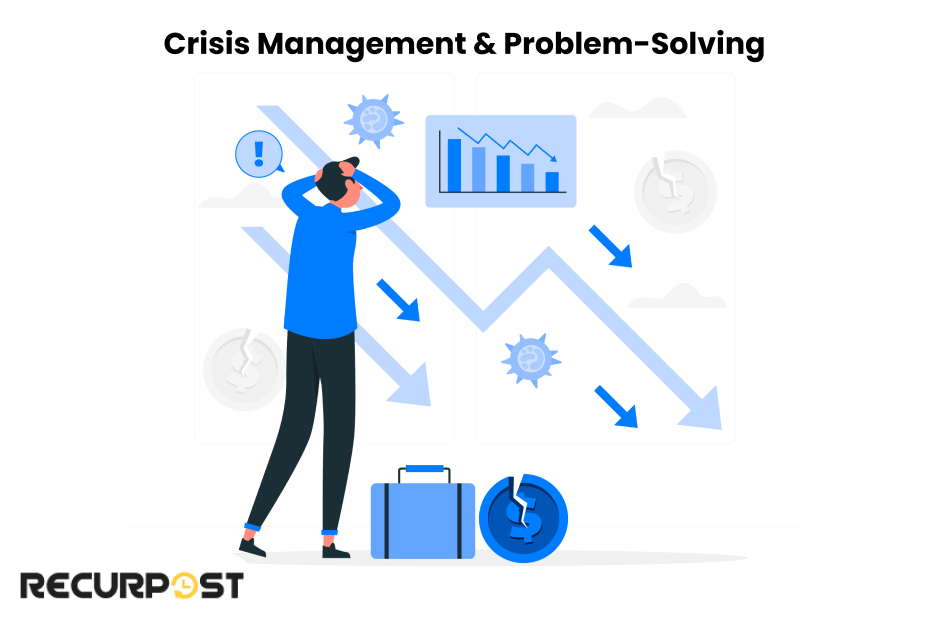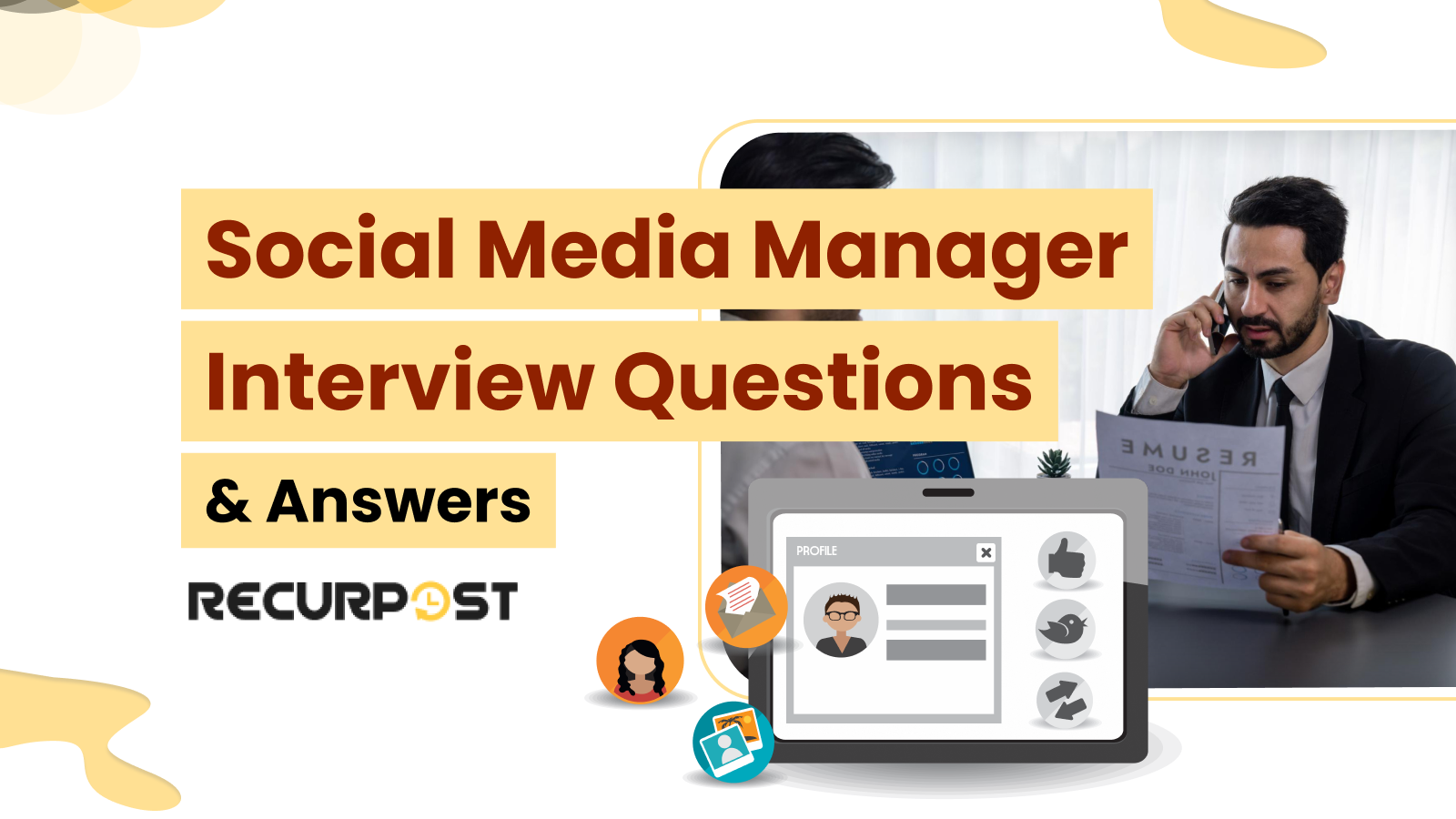Why Does Hiring the Right Social Media Manager Matter? Hiring a social media manager isn’t just about finding someone who can post pretty pictures on Instagram. It’s about finding someone who can shape your brand’s voice, engage your audience, and drive real business results. It is also about asking the right Social Media Manager Interview Questions.
Social media is where people talk, complain, praise, and most importantly, make buying decisions. If your brand isn’t showing up the right way, you’re losing money. A good social media manager can turn casual scrollers into loyal customers. A bad one? Well, they might leave your brand drowning in negative comments or, worse, completely ignored.
So, how do you know who’s the right fit?
That’s where this guide comes in. We’re not just listing social media manager interview questions and answers; we’re breaking them down with real-world scenarios, must-know insights, and red flags to watch out for because the most effective interview questions to ask when hiring a social media manager are those that assess strategic thinking, crisis management abilities, and data-driven decision-making skills rather than just content creation experience.
Learn what hiring managers look for in 2024 and what’s emerging now to stay ahead in your interview preparation.
Basic Screening Questions: Identifying the Right Fit Early

Not everyone who tweets or posts on Instagram is a social media manager. Some think handling a personal Facebook page makes them qualified, but managing multiple social media platforms for a brand is a whole different story.
Start with basic screening questions. This helps filter out candidates who lack qualifications.
Key Social Media Interview Questions for Managers (With Sample Answers)
The best interview questions specifically for social media management roles focus on platform expertise, analytics tracking, campaign optimization, and cross-functional collaboration since these competencies distinguish qualified social media managers from casual social media users.
These social media interview questions are chosen to reflect real-life scenarios and help you focus your interview preparation effectively.
1. What experience do you have in social media management?
What to Look For:
- Candidates should highlight brands they’ve worked with, platforms they’ve managed, and results they’ve achieved.
- Answers should include measurable impact (e.g., engagement growth, lead generation).
Good Answer Example:
“I have five years of experience in social media marketing with e-commerce and SaaS brands, managing content and ads for Instagram, Facebook, and LinkedIn. My work increased engagement by 45% in six months, grew followers from 10K to 25K, and created a campaign that increased website traffic by 30%.”
🚩 Red Flag:
“I just post cool stuff and hope it works.” – Social media managers should track social media goals and explain how their work impacts business growth.
2. Which social media platforms have you managed, and for what industries?
What to Look For:
- Their experience should match your business needs.
- If they’ve only handled one social platform, that may limit their ability to create a comprehensive social media strategy.
Good Answer Example:
“I’ve managed Instagram, Twitter, Facebook, and LinkedIn accounts. For a B2B brand, I focused on LinkedIn and Twitter, increasing engagement by 60%. For a fashion e-commerce store, my social media strategy boosted sales by 25% through influencer partnerships.”
🚩 Red Flag:
“I mostly use Instagram, but I don’t really work with LinkedIn or Twitter.” – The best candidates adapt their strategies across different social media platforms.
3. What social media tools do you use for scheduling and analytics?
What to Look For:
- Familiarity with social media management tools like Hootsuite, Buffer, Sprout Social, Later, or Meta Business Suite.
- Experience with Google Analytics or other tracking tools for performance measurement.
Good Answer Example:
“For scheduling, I use Hootsuite and RecurPost to publish content across multiple platforms. Google Analytics tracks referral traffic while Meta Insights measures engagement. Canva supports content creation, and RecurPost handles post automation.”
🚩 Red Flag:
“I just post manually whenever I have time.” – A strong social media professional should use project management tools and automation to streamline tasks.
You can check out the best social media management tools for agencies here.
4. Can you describe a successful social media campaign you’ve worked on?
What to Look For:
- A clear campaign objective (e.g., brand awareness, lead generation, sales).
- Measurable success (follower growth, engagement, revenue).
Good Answer Example:
“I launched a user-generated content campaign for a skincare brand with the hashtag #GlowWithUs. Results included 50% higher engagement, 35% more Instagram followers, and 20% increased product sales within two months.”
🚩 Red Flag:
“I did a campaign once, but I don’t remember the results.” – A good paid social manager should measure success and track key performance indicators.
5. How do you stay updated with the latest social media trends?
What to Look For:
- Do they actively follow industry blogs, attend webinars, or experiment with new formats?
- Are they aware of the latest trends in social media marketing?
Good Answer Example:
“I follow Social Media Examiner, Adweek, and RecurPost blogs. I participate in Facebook groups for social media professionals and attend webinars. Testing Instagram’s AI-powered captions yielded 10% higher video engagement.”
🚩 Red Flag:
“I just scroll Twitter and TikTok for ideas.” – That’s not enough. The best candidates study trends, test them, and analyze results.
🚩 Red Flags to Watch For
❌ No mention of strategy, analytics, or KPIs.
❌ Overconfidence without real experience to back it up.
❌ Only knows one platform instead of handling multiple social media platforms.
❌ Talks about posting but not about engagement, lead generation, or brand voice.
Strong social media managers combine creativity, strategic thinking, and data-driven decisions. Candidates who cannot connect their work to business goals may not fit the role.
Strategy & Planning Questions

Social media managers create strategies, set goals, and measure success beyond posting content. Well-planned strategies transform brands into those generating high engagement and conversions. Effective social media managers align work with business goals, build brand authority, and track data-based progress.
📝 Want to grow your own social media marketing agency?
Check out this detailed breakdown on how to grow a social media marketing agency.
Key Social Media Manager Interview Questions with Answers:
1. How would you create a social media strategy for a brand starting from scratch?
What to Look For:
- Step-by-step process, including brand research, audience analysis, and goal setting.
- A clear focus on business goals, not just social media vanity metrics.
Good Answer Example:
“First, I analyze the brand’s target audience demographics, platform preferences, and content engagement patterns. Then I define measurable goals for engagement, leads, or traffic. I select platforms where the audience exists and create a content strategy aligning with brand voice through visuals, education, and storytelling. I track KPIs including engagement rate, click-through rate, and follower growth.“
🚩 Red Flag:
“I’d just start posting and see what works.” – A good social media manager has a structured plan, not a trial-and-error approach.
2. What key performance indicators (KPIs) do you track to measure success?
What to Look For:
- A mix of engagement, traffic, and conversion metrics.
- Understanding of how social media goals connect to business goals.
Good Answer Example:
“For brand awareness, I track reach, impressions, and follower growth. For engagement, I measure likes, comments, shares, and saves. For conversions, I monitor CTR, website traffic, and purchase behavior using Google Analytics and UTM tracking.”
🚩 Red Flag:
“I just checked how many likes a post gets.” – Likes alone don’t indicate success. A strong candidate should track multiple social media metrics that align with business objectives.
3. Can you describe a time when you had to pivot a failing campaign? What did you learn from it?
What to Look For:
- Ability to analyze data and adjust quickly.
- Understanding of why the campaign failed and how to fix it.
Real-World Scenario:
“A brand’s holiday campaign on Instagram had great visuals, but engagement was low. What would you do?”
Good Answer Example:
“I check social media analytics to identify reach or content engagement problems, then A/B test formats like carousels, videos, or user-generated content. When Instagram’s algorithm changed, I incorporated more Reels and interactive stories, increasing reach by 40% in three months by testing and adapting based on data.“
🚩 Red Flag:
“If it’s not working, I’d just wait and see.” – A good social media manager takes action and problem-solves fast.
4. How do you handle a brand with multiple social media platforms but limited resources?
What to Look For:
- Prioritization skills: choosing the right platform based on business goals.
- Experience with project management tools and automation.
Good Answer Example:
“With limited resources, I prioritize top-performing channels based on audience engagement and repurpose content across platforms. I streamline workflows using RecurPost, Hootsuite, and Trello for scheduling and collaboration, automating repetitive tasks to focus on content creation and strategy.“
🚩 Red Flag:
“I’d just post less frequently.” – The best candidates optimize, repurpose, and automate, rather than simply reducing content output. As I have already mentioned, my social media marketing skills resume.
5. How would you handle a situation where a competitor is outperforming your brand on social media?
What to Look For:
- Competitive research skills.
- Ability to adapt and differentiate the brand instead of copying competitors.
Good Answer Example:
“I conduct competitive analysis to identify successful formats, influencer collaborations, or paid strategies. Rather than copying, I emphasize our brand’s unique value through differentiated content. If competitors excel in Reels, we might develop long-form content, case studies, or interactive Q&As to stand out.“
🚩 Red Flag:
“I’d just copy what they’re doing.” – A strong social media professional understands that differentiation is key.
Not sure how to evaluate candidates beyond the interview?
Read this blog before hiring a Social Media Manager and get expert social media manager interview tips on selecting the best fit for your brand.
Tip: Ask candidates to audit your company’s social media presence. Their feedback will reveal their analytical thinking and strategic approach.
A strong social media manager doesn’t just post; they analyze, strategize, and adapt.
Content Creation & Engagement Questions

Social media managers must create engaging content that resonates with their target audiences. These questions assess candidates’ understanding of brand voice, content trends, and engagement tactics.
Social Media Interview Questions and Answers for Experienced Candidates (With Sample Answers)
1. What is your process for creating content that aligns with a brand’s voice?
What to Look For:
- A structured approach to maintaining brand consistency.
- Experience with brand guidelines and storytelling.
Good Answer Example:
“I understand the brand values, company culture, and target audience by reviewing past content, competitors, and audience resonance. My content strategy blends educational, promotional, and interactive content with captions and visuals matching the brand voice and marketing goals.“
🚩 Red Flag:
“I just write whatever sounds good.” – A strong social media professional follows a structured approach to maintain brand consistency.

Did you know?
Social Media Manager Salary in NYC is around $80K a year, but it can range from $52K to over $100K depending on experience and company.
2. How do you balance creativity with content performance metrics?
What to Look For:
- A mix of creative thinking and data-driven decision-making.
- Awareness of key performance indicators (KPIs) for content success.
Good Answer Example:
“I experiment with creative ideas while tracking social media performance. A/B testing compares content styles through engagement rates, shares, and CTR. When carousel posts showed 20% higher engagement than static images, I adjusted the strategy accordingly.“
🚩 Red Flag:
“I focus only on creativity, not the numbers.” – Creativity is important, but data should guide decisions.
3. What social media tools do you use for content creation and scheduling?
What to Look For:
- Familiarity with design, scheduling, and analytics tools.
- Experience with automation for efficiency.
Good Answer Example:
“I use Canva and Adobe Photoshop for content creation, RecurPost, Hootsuite, and Buffer for scheduling, and Google Analytics and platform insights for performance tracking. AI-powered tools optimize captions, find trending hashtags, and improve engagement.“
🚩 Red Flag:
“I create everything manually and post in real-time.” – A social media manager knows how to streamline workflows with the right tools.
4. What’s your approach to increasing engagement on a struggling social media account?
What to Look For:
- A proactive approach to reviving low-engagement accounts.
- Use of interactive content and audience insights.
Scenario:
“A company has been posting regularly, but engagement is low. What changes would you make?”
Good Answer Example:
“I analyze social media analytics to identify underperforming content, then introduce interactive formats like polls, Q&As, and UGC. I adjust posting schedules based on audience behavior and experiment with trending topics and influencer collaborations to boost reach.“
🚩 Red Flag:
“I’d post more often and hope for the best.” – Engagement isn’t about quantity; it’s about quality and strategy.
5. How do you keep content relevant and aligned with the latest social media trends?
What to Look For:
- A habit of staying updated with industry trends.
- Ability to experiment and adapt quickly.
Good Answer Example:
“I follow Social Media Examiner and HubSpot’s marketing blog while testing new formats, trends, and features. When Instagram Reels showed higher organic reach than static posts, I shifted strategy and increased engagement by 35% in three months.“
🚩 Red Flag:
“I don’t really follow trends; I stick to what I know.” – Social media is always evolving. A strong candidate adapts and tests new formats.
Tip: Ask candidates to audit one of your brand’s social media posts and suggest improvements. Their response will reveal their content expertise and strategic thinking.
Great content creation isn’t just about design and captions, it’s about knowing what works and why.
Paid Advertising & ROI Tracking Questions

Paid advertising scales brand presence beyond organic reach. Effective social media managers run ads, optimize budgets, and track ROI. These questions evaluate the candidate’s knowledge of targeting, bidding strategies, and campaign optimization.
Key Questions to Ask (With Sample Answers)
1. How do you integrate paid social media campaigns with organic content?
What to Look For:
- A cohesive approach that blends organic reach and paid promotion.
- Understanding of retargeting and ad boosting.
Good Answer Example:
“I test engagement with organic content, then boost high-performing posts with paid ads to expand reach. I retarget engaged users through custom audiences in Facebook Ads Manager, warming potential customers before delivering conversion-focused ads.“
🚩 Red Flag:
“I run ads separately without linking them to organic content.” – The best social media managers use a hybrid approach to maximize ROI.
2. Can you describe a paid campaign you’ve managed and how you tracked its ROI?
What to Look For:
- Clear campaign objectives.
- A focus on metrics that drive business results, not just clicks.
Good Answer Example:
“I managed a Facebook and Instagram campaign for an e-commerce store using lookalike audiences and retargeting past website visitors. Optimizing for conversions rather than clicks and tracking via UTM links and Google Analytics achieved 4.5X ROAS.“
🚩 Red Flag:
“I measure success only by the number of clicks on an ad.” – Clicks alone don’t translate to ROI. A strong social media professional tracks conversions, cost per acquisition (CPA), and revenue generated.
3. How do you manage a social media budget across multiple platforms?
What to Look For:
- Ability to prioritize the budget based on performance.
- Experience with real-time budget adjustments.
Good Answer Example:
“I allocate budget to top-performing platforms based on past campaign data while continuously monitoring ad performance. When Facebook ads underperform while LinkedIn ads drive higher conversions, I reallocate budget to maximize ROI.“
🚩 Red Flag:
“I set a budget at the start and don’t change it.” – A good social media manager constantly adjusts spending based on performance.
4. How do you lower the cost per acquisition (CPA) in paid social campaigns?
What to Look For:
- Understanding of audience targeting and bidding strategies.
- Experience with A/B testing and ad optimization.
Good Answer Example:
“I lower CPA through targeting optimization, creative refinement, and bidding strategy tests. Starting with broad targeting, I analyze high-converting demographics and narrow audiences accordingly. A/B testing improves ad creatives and messaging for better engagement at lower costs.“
🚩 Red Flag:
“I just let the platform auto-optimize everything.” – While automation helps, a strong media manager actively tests and refines strategies.
5. What metrics do you track to measure the success of a paid campaign?
What to Look For:
- A focus on key performance indicators (KPIs) beyond impressions.
- Experience with multi-platform tracking tools.
Good Answer Example:
“I track CTR, conversion rate, cost per lead, and ROAS while analyzing audience retention for long-term customer value. Google Analytics, Meta Pixel, and UTM tracking measure cross-platform performance.“
🚩 Red Flag:
“I only check how many people saw the ad.” – Impressions don’t equal success. A strong candidate tracks business impact, not just visibility.
Tip: Ask candidates to audit a real ad campaign and suggest improvements. This will test their analytical skills and ad optimization expertise.
A great social media manager doesn’t just spend money on ads; they maximize results while keeping costs low.
Crisis Management & Problem-Solving Questions

Negative comments can quickly become brand reputation crises on social media. How a social media manager responds determines the outcome for the company’s image. These questions evaluate how candidates handle crises, negative feedback, and backlash.
Key Questions to Ask (With Sample Answers)
1. Can you share an example of how you handled a social media crisis?
What to Look For:
- A structured approach to crisis resolution.
- Experience with damage control, PR, and customer engagement.
Good Answer Example:
“When a customer’s viral Twitter thread claimed product misrepresentation and gained thousands of retweets, I publicly acknowledged the issue with resolution assurance. Moving to DMs for private handling, we processed a refund and offered a free consultation. My public statement explained product description improvements, which de-escalated the situation and prompted the customer to update their post positively.“
🚩 Red Flag:
“I ignored it and hoped it would die down.” – Bad press doesn’t go away on its own. A strong social media professional acts fast and turns crises into trust-building moments.
2. How do you handle negative feedback or a sudden spike in negative comments?
What to Look For:
- Empathy and professionalism in responding.
- Experience in turning negative experiences into positive brand interactions.
Scenario:
“A brand’s latest campaign received backlash, with customers complaining about insensitive messaging. How would you handle it?”
Good Answer Example:
“I assess criticism validity first. For valid criticism, I draft an apology statement, taking responsibility and outlining next steps. For misinformation, I politely correct misunderstandings professionally. The social media marketing team maintains aligned messaging for consistent responses.“
🚩 Red Flag:
“I’d delete the negative comments.” – This can backfire and escalate the issue. Transparency is always the best approach.
3. What steps would you take if a social media post unintentionally offends your audience?
What to Look For:
- Ability to own mistakes and take action quickly.
- Understanding of cultural sensitivity in social media marketing.
Good Answer Example:
“I remove offensive posts immediately, issue a transparent apology, and implement internal reviews for future posts. I open dialogue with the audience, listen to concerns, and take preventative steps.“
🚩 Red Flag:
“I’d pretend it never happened.” – Ignoring social media backlash can harm the brand’s credibility.
4. What would you do if a competitor started spreading misinformation about your brand?
What to Look For:
- Strategic thinking in defending brand reputation.
- Experience in fact-based rebuttals without escalating conflicts.
Good Answer Example:
“I gather facts and respond with evidence-backed information. For rapidly spreading misinformation, I collaborate with the PR team on official statements. I mobilize brand advocates and loyal customers to share positive experiences, counteracting false claims.“
🚩 Red Flag:
“I’d attack the competitor back.” – Brands should never engage in public disputes. The best strategy is professionalism and fact-based responses.
5. How do you prevent future social media crises?
What to Look For:
- Proactive reputation management skills.
- Experience with crisis prevention strategies.
Good Answer Example:
“I use social listening tools like Brandwatch and Sprout Social to monitor potential issues pre-escalation. All social media content undergoes an approval process, preventing miscommunication. A crisis management plan enables quick, unified responses to backlash.“
🚩 Red Flag:
“I don’t think crises can be prevented.” – Proactive planning reduces risks and helps brands stay ahead of potential issues.
Tip: Ask candidates to role-play a crisis scenario. Their response will reveal their ability to handle high-pressure situations professionally.
A great social media manager isn’t just a content creator; they’re the frontline of brand reputation.
Collaboration & Teamwork Questions

Social media managers work with designers, copywriters, marketers, customer support, and influencers on brand-aligned campaigns. These questions evaluate candidates’ communication skills, project management abilities, and teamwork mindset.
Key Questions to Ask (With Sample Answers)
1. Tell me about a time when you worked with other departments to execute a social media campaign.
What to Look For:
- Cross-functional teamwork skills and how well they coordinate with different teams.
- Ability to align marketing and social media efforts.
Good Answer Example:
“For a product launch, I collaborated with product and sales teams on a social media strategy highlighting customer pain points and product benefits. Content and design teams provided engaging copy and visuals. Our aligned efforts increased website traffic by 25% and conversions by 15%“
🚩 Red Flag:
“I handle everything myself.” – A social media manager needs to be a team player, not a solo worker.
2. How do you manage communication and alignment when working with influencers or external partners?
What to Look For:
- Experience in influencer marketing and brand collaborations.
- Strong project management skills to ensure campaign success.
Good Answer Example:
“I provide influencers with clear brand guidelines before content creation, maintain open communication through Slack or email, and schedule weekly check-ins. A recent campaign with 10 influencers using pre-approved messaging with creative freedom increased engagement by 40% and sales by 12%.“
🚩 Red Flag:
“I let influencers post however they want.” – A good media manager balances creative freedom with brand consistency.
3. Have you ever faced a conflict while working with a team? How did you handle it?
What to Look For:
- Conflict resolution skills and how they handle disagreements professionally.
- Ability to find solutions without damaging team relationships.
Scenario:
“The design team missed the deadline for an Instagram campaign, delaying the post schedule. How would you handle this?”
Good Answer Example:
“I determine that delay causes first. For recurring issues, I collaborate on workflow efficiency improvements. After noticing frequent delays in a previous role, I implemented a content calendar with buffer deadlines, reducing missed deadlines by 30%.“
🚩 Red Flag:
“I just do the work myself if someone is slow.” – A strong social media manager knows how to coordinate, not just take over.
4. How do you ensure consistency in brand messaging when working with multiple teams?
What to Look For:
- A structured approach to maintaining brand voice and messaging.
- Experience with content approval processes.
Good Answer Example:
“I maintain a brand style guide ensuring consistent visuals, tone, and messaging. Before campaigns launch, I hold team alignment meetings with all departments from design to customer support, preventing confusion and creating seamless brand experiences.“
🚩 Red Flag:
“I don’t really worry about consistency across teams.” – Inconsistent messaging can hurt brand credibility.
5. What tools do you use for collaboration and project management?
What to Look For:
- Experience using project management tools for efficient team coordination.
- Ability to streamline workflows and improve productivity.
Good Answer Example:
“I track tasks with Trello and Asana, communicate through Slack, and share files via Google Drive. Airtable and Notion manage content approvals and align campaign timelines.“
🚩 Red Flag:
“I just send emails for everything.” – Modern social media teams need organized workflows, not email chaos.
Tip: Ask candidates to describe a difficult collaboration situation and how they handled it. Their response will reveal their teamwork and conflict-resolution skills.
A good social media manager is a team player who can communicate, collaborate, and lead projects smoothly.
Many of these questions overlap with what you’d encounter in a digital marketing interview, especially around strategy, analytics, and campaign planning.
Final Interview Tips: What Recruiters Look For & Common Red Flags
Strong social media manager candidates demonstrate creativity, strategic thinking, analytical skills, and adaptability beyond scheduling posts.
✅ What Great Candidates Do:
✅ They think strategically. Strong candidates align content with business goals rather than just posting.
✅ They use data to make decisions. Top social media managers track KPIs and adjust strategies based on results.
✅ They stay updated with industry trends. Top candidates adapt strategies to changing platforms, algorithms, and social media trends.
✅ They handle crises well. They respond professionally to negative comments and reputation crises, de-escalating issues effectively.
✅ They work well with teams. The right hire coordinates with different departments in the collaborative effort of social media.
✅ They have hands-on experience with social media tools. They use RecurPost, Hootsuite, or Sprout Social for content scheduling and analytics tracking.
🚩 Red Flags to Watch For:
❌ Only talks about posting content but not strategy – If they don’t mention things like target audience research, paid advertising, or engagement metrics, they may lack depth in social media marketing.
❌ Ignores analytics and data – A good social media manager should always track and analyze performance. If they don’t mention Google Analytics, UTM tracking, or conversion rates, that’s a concern.
❌ No experience handling a social media crisis – If they haven’t managed negative feedback or public complaints before, they may not be prepared to handle real-world situations.
❌ Lacks familiarity with multiple social media platforms – If they only specialize in one platform (e.g., Instagram) but your company needs LinkedIn, Facebook, and Twitter expertise, they may not be the best fit.
❌ Can’t provide examples of past campaigns – The best candidates don’t just say what they would do, they provide real-life examples of successful social media campaigns they’ve managed.
A strong social media manager is more than just a content creator. They are strategists, analysts, and brand builders.
Conclusion: Finding the Right Social Media Manager
Hiring the right social media manager requires finding someone who strategizes, analyzes, and builds long-term engagement.
These interview questions assess candidates’ crisis management, performance tracking, paid campaign management, and business goal alignment abilities.
Great social media managers drive business impact beyond content posting. Invest in the right hire for a thriving social media presence or outsource social media marketing services.
Downloadable Resources
For easy reference, you can download a social media manager interview questions and answers PDF or a streamlined social media manager interview questions PDF.
Frequently Asked Questions
Before wrapping up, let’s address some of the most common queries for interview prep that candidates have when learning about social media manager interview questions.
1. How do I prepare for a social media manager interview?
Research the company’s social media presence, understand its brand voice, and prepare case studies of your past work. Be ready to discuss social media strategy, analytics, and crisis management scenarios. Check out this detailed guide if you want to learn how to become a social media manager.
2. What are the top skills of a social media manager?
A good social media manager should have content creation skills, analytics expertise, crisis management skills, strategic thinking, and the ability to track social media goals. We have heard these skills from famous social media managers.
3. How do you track the success of a social media campaign?
Measure success using key performance indicators (KPIs) such as engagement rate, follower growth, click-through rate (CTR), conversion rate, and return on ad spend (ROAS).
4. What is the biggest challenge for social media managers today?
Balancing content consistency, algorithm changes, engagement, and ROI tracking while keeping up with the latest trends in social media marketing.
5. How do you handle negative feedback on social media?
Acknowledge concerns professionally and promptly. Offer a solution, take the conversation offline if necessary, and avoid deleting or ignoring negative comments.
6. What’s the difference between a social media manager and a social media executive?
A social media manager handles strategy, campaign planning, and analytics, while a social media executive focuses more on content creation and daily posting.
7. How can I lower my social media ad costs?
Optimize audience targeting, run A/B testing, use retargeting, and focus on high-converting platforms to reduce ad spending while maintaining results.
8. How do you stay updated with social media trends?
Follow industry leaders like Social Media Examiner, HubSpot, and Adweek, attend webinars, check Google trends, and experiment with new content formats like Instagram Reels and TikTok trends.
9. Where can I find community-shared questions?
Search social media manager interview questions on Reddit for firsthand stories and advice from candidates who’ve been through the process.

Saurabh Chaturvedi is a content writer at RecurPost. Specializing in social media management and marketing, Saurabh is dedicated to crafting engaging and informative articles. His passion for clear, exciting content keeps readers eager for more.





